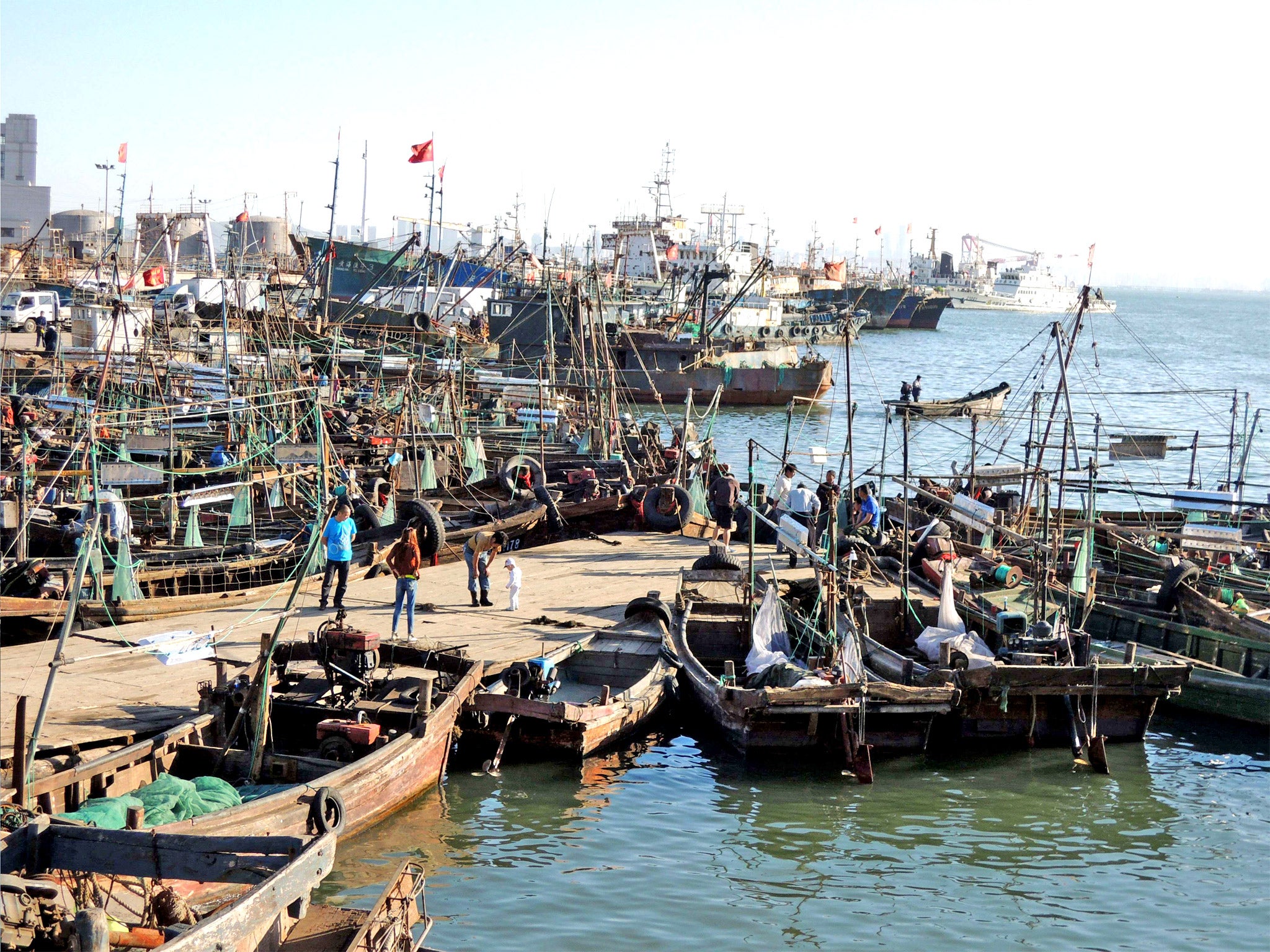Kim Jong-un tries to rebuild bridges with release of Chinese hostages
Fishermen freed as speculation grows that Beijing may be planning for regime change

Your support helps us to tell the story
From reproductive rights to climate change to Big Tech, The Independent is on the ground when the story is developing. Whether it's investigating the financials of Elon Musk's pro-Trump PAC or producing our latest documentary, 'The A Word', which shines a light on the American women fighting for reproductive rights, we know how important it is to parse out the facts from the messaging.
At such a critical moment in US history, we need reporters on the ground. Your donation allows us to keep sending journalists to speak to both sides of the story.
The Independent is trusted by Americans across the entire political spectrum. And unlike many other quality news outlets, we choose not to lock Americans out of our reporting and analysis with paywalls. We believe quality journalism should be available to everyone, paid for by those who can afford it.
Your support makes all the difference.Pyongyang has backed down from a potentially damaging confrontation with its closest ally by releasing the crew of a Chinese fishing boat held hostage for over two weeks.
North Korea reportedly demanded 600,000 yuan (£66,000) to free the 16 men, who were seized in the Yellow Sea. China’s foreign ministry said the boat’s captain had confirmed the release. “The crew was safe and the owner did not pay the so-called penalty,” said ministry spokesman Hong Lei, according to China’s Xinhua news agency.
The incident, which was widely publicised in China, is being taken as another sign that ties between the two countries are fraying and that the North’s young leader, Kim Jong-un, may be overplaying his hand. Earlier this month, the Bank of China ended transactions with the North’s primary foreign exchange bank in a sign of apparent frustration with the isolated country’s third nuclear missile test, which took place in February.
Beijing has been under pressure from Washington for years to rein in Pyongyang, which relies on its neighbour for most of its trade and financial aid.
It is still not clear if Beijing’s displeasure is a real shift in policy or a ploy designed to appease Washington, but the growing signs of tension have triggered speculation that China’s government is trying to induce regime change. China is long known to have contingency plans in place if the North implodes, though the details are unknown. Mr Kim’s elder brother, Kim Jong-nam, 42, who lives in exile outside the North, is believed to be under Chinese protection, possibly as part of those plans.
Kim Jong-nam was tipped to take over from his father Kim Jong-il, who died in December 2011. But he is thought to have permanently ended his chances of succession after he was caught trying to visit Tokyo Disneyland on a fake passport in 2001. A report on Germany’s international broadcaster Deutsche Welle quoted “intelligence sources”, saying Beijing may be grooming him for a post-collapse leadership role.
Pyongyang’s decision this month to replace Kim Kyok-sik, the four-star general credited with the deadly 2010 attack on the South Korean island of Yeonpyeongdo, has added to speculation that Kim Jong-un is pulling in his horns, under pressure from Beijing. The North recently ordered two apparently launch-ready Musudan intermediate-range missiles back to base.
But experts say China is unlikely to risk sponsoring a coup. “It is true that China is annoyed about North Korea’s brinkmanship and is sending some warning signals to Pyongyang,” says Andrei Lankov, author of Crisis in North Korea. But he insists there is “no way” that Beijing is willing to completely abandon its ally.
“It is likely to keep it above the water, since the alternatives to the unpleasant status quo are even worse. And I do not see China sponsoring a coup inside the country – too risky.”
Join our commenting forum
Join thought-provoking conversations, follow other Independent readers and see their replies
Comments